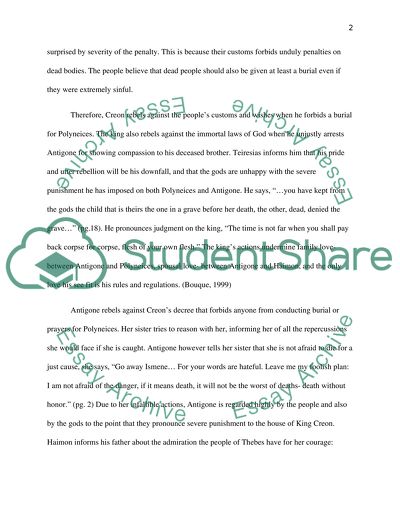Cite this document
(“Antigone by Sophocles Research Paper Example | Topics and Well Written Essays - 2000 words”, n.d.)
Retrieved from https://studentshare.org/literature/1684116-antigone-by-sophocles
Retrieved from https://studentshare.org/literature/1684116-antigone-by-sophocles
(Antigone by Sophocles Research Paper Example | Topics and Well Written Essays - 2000 Words)
https://studentshare.org/literature/1684116-antigone-by-sophocles.
https://studentshare.org/literature/1684116-antigone-by-sophocles.
“Antigone by Sophocles Research Paper Example | Topics and Well Written Essays - 2000 Words”, n.d. https://studentshare.org/literature/1684116-antigone-by-sophocles.


